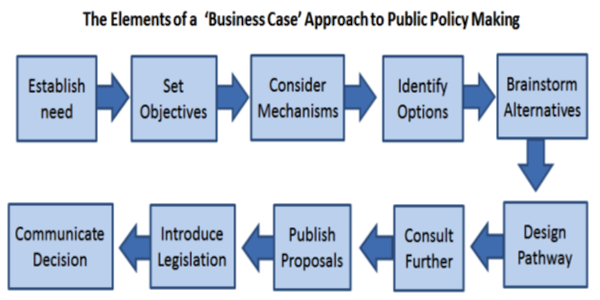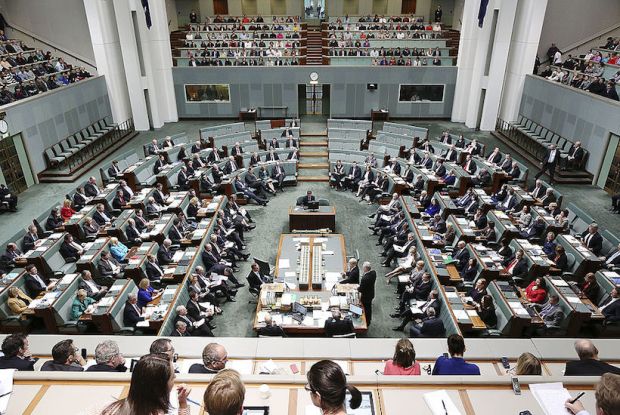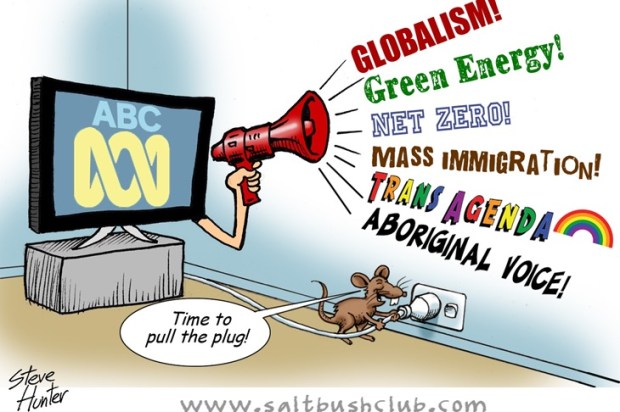For the third year running, independent research undertaken by two philosophically opposed Right and Left think tanks — the Institute of Public Affairs and Per Capita — has found that basic standards of evidence and consultation-based policymaking are only loosely followed by Australian federal and state governments. Nevertheless, there was an improvement on last year’s results.
Review Findings
The thinks tanks agreed the two highest scoring policies were the Queensland Personalised Transport Ombudsman and the Federal My Health Record which received average total scores of 9.5 and 9.0 respectively out of an ideal 10.0. The Federal Client Rights to Bank Data Bill also scored highly at 8.5. The lowest scored case studies were the Federal Repeal of Medevac Bill and the Victorian Free TAFE provisions which respectively averaged total scores of 3.0 and 3.5 out of 10.0.
The main findings of the two think tanks were as follows, after averaging their total scores for each case study. In 16 of the 20 case studies, both think tanks gave the same or similar score. In the remaining cases the scoring difference was 2 points.
Excellent Process
- Queensland Personalised Transport Ombudsman 9.5
- Fed My Health Record 9.0
Sound Process
- Federal Client Rights to Bank Data 8.5
Acceptable Process
- *Federal JobKeeper 7.5
- *Federal COVIDSafe 7.5
- Victorian Gender Equality Bill 7.5
- New South Wales Abortion Law Reform 7.0
- Victorian Wage Theft Bill 7.0
- Queensland Child Death Review Bill 7.0
Mediocre Process
- *Victorian Invoking of Emergency Powers 6.5
- *Federal Funding Childcare 6.0
- *NSW Invoking of Emergency Powers 6.0
- NSW Music Festivals Bill 6.0
- NSW Right to Farm Bill 6.0
- *Queensland Invoking of Emergency Powers 6.0
- Queensland Police Discipline Reform Bill 5.5
- *Federal Early Release of Superannuation 5.5
- *Federal HomeBuilder Grant 5.0
Unacceptable Process
- Victorian Free TAFE Provisions 3.5
- Federal Repeal of Medevac Bill 3.0
Note: The invoking of state emergency powers did not include the execution of them.
The IPA and Per Capita jointly selected the 20 case studies to examine with each organisation preparing its own report before comparing results and reconciling any differences over public information — such as whether alternative policy options considered or stakeholders consulted.
An important variation on previous research is that this year eight of the case studies involved how well governments made decisions in response to a national emergency, the coronavirus pandemic. These are asterisked* above. This required modifying the standard “Wiltshire business case” criteria for assessing the quality of government policymaking in ‘normal’ times to dealing with a ‘crisis’ demanding urgent decisions.
Review Methodology
The research was commissioned by the newDemocracy Foundation (nDF), a non-partisan organisation that seeks ways “we can do democracy better”. This year it was fully funded by the Susan McKinnon Foundation, which underwrites better policy governance projects.
Each think tank separately benchmarked the same 20 federal and state government policies against ten attributes of good decision making identified by Professor Kenneth Wiltshire AO, the J. D. Story Professor of Public Administration at the University of Queensland Business School. Four of these criteria were modified for those case studies involving urgent emergency policy responses.

The Wiltshire criteria focus on good process, not results, because the net fiscal, social, economic, and environmental impact of a policy may not be known for a long time. The think tank reports’ findings involve judgements only about the way a legislated policy was made, not whether it was good or bad policy per se.
However, Professor Wiltshire says:
My research over nearly four decades suggests that good policy processes result in better outcomes than decisions made without a strong evidence base and close consultation with stakeholders.
An exception to this might be where a policy needs to be made on the run such as in bushfire, flood, earthquake, or pandemic crises where less time is available to design the policy carefully.
The think tanks relied on publicly available information for each case study’s assessment criteria since a government’s final policy decision should have transparent underpinnings.
Conclusion
As with previous year’s research, it was reassuring that experts from both a Right and Left think tank could broadly agree on which legislated policies had been well formulated and which had not even though they did not necessarily agree on the policy prescriptions.
As with previous years’ case studies, the research found the most scope for improving ‘normal’ policy-making was with comparing costs and benefits of alternative policy options, explaining how a policy decision would be rolled out and issuing a Green Paper to invite public feedback before announcing a policy decision in a White paper.
For ‘emergency’ policymaking the research suggests that governments should give more attention to weighing up alternative options and methods, disclosing key data and consulting recognised experts in the subject matter before deciding a particular course of action.
Governments repeatedly get into trouble because of a faulty decision-making process. To avoid that trap they should adopt good policymaking steps as proposed by the Wiltshire criteria. That would ensure real evidence and consultation-based policies to win the public’s trust. Indeed, those policy case studies that largely followed good process seemed to fare better politically than those that only partially adhered to it.
Good process leads to good policy which in turn makes for good politics. That is clear from the 60 case studies we have now completed over the last three years. Politicians should heed the lessons from our case studies if they want to restore credibility with an increasingly jaded electorate.
The two think tanks’ reports as well as the statement summarising the results are available on the newDemocracy website.
Percy Allan AM is chair of the Evidence-based Policy Research Project facilitated by the newDemocracy Foundation and funded by the Susan McKinnon Foundation. He is a Visiting Professor at the Institute of Public Policy and Governance, University of Technology Sydney, a public policy, management and finance adviser and a former Secretary, NSW Treasury.
Got something to add? Join the discussion and comment below.
Get 10 issues for just $10
Subscribe to The Spectator Australia today for the next 10 magazine issues, plus full online access, for just $10.


























Comments
Don't miss out
Join the conversation with other Spectator Australia readers. Subscribe to leave a comment.
SUBSCRIBEAlready a subscriber? Log in